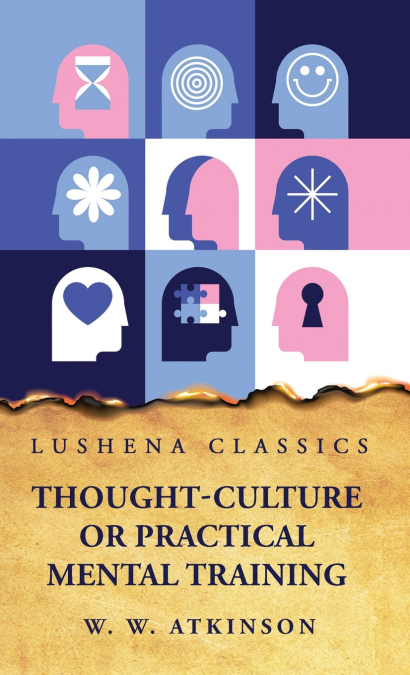
 Librería Desdémona
Librería Desdémona
 Librería Samer Atenea
Librería Samer Atenea
 Librería Aciertas (Toledo)
Librería Aciertas (Toledo)
 Kálamo Books
Kálamo Books
 Librería Perelló (Valencia)
Librería Perelló (Valencia)
 Librería Elías (Asturias)
Librería Elías (Asturias)
 Donde los libros
Donde los libros
 Librería Kolima (Madrid)
Librería Kolima (Madrid)
 Librería Proteo (Málaga)
Librería Proteo (Málaga)
What is thought? The answer is not an easy one, although we use the term familiarly almost every hour of our waking existence. The dictionaries define the term 'Thought' as follows: 'The act of thinking; the exercise of the mind in any way except sense and perception; serious consideration; deliberation; reflection; the power or faculty of thinking; the mental faculty of the mind; etc.' This drives us back upon the term, 'to think' which is defined as follows: 'To occupy the mind on some subject; to have ideas; to revolve ideas in the mind; to cogitate; to reason; to exercise the power of thought; to have a succession of ideas or mental states; to perform any mental operation, whether of apprehension, judgment, or illation; to judge; to form a conclusion, to determine; etc.'Thought is an operation of the intellect. The intellect is: 'that faculty of the human soul or mind by which it receives or comprehends the ideas communicated to it by the senses or by perception, or other means, as distinguished from the power to feel and to will; the power or faculty to perceive objects in their relations; the power to judge and comprehend; also the capacity for higher forms of knowledge as distinguished from the power to perceive and imagine.'When we say what we 'think,' we mean that we exercise the faculties whereby we compare and contrast certain things with other things, observing and noting their points of difference and agreement, then classifying them in accordance with these observed agreements and differences. In thinking we tend to classify the multitude of impressions received from the outside world, arranging thousands of objects into one general class, and other thousands into other general classes, and then sub-dividing these classes, until finally we have found mental pigeon-holes for every conceivable idea or impression. We then begin to make inferences and deductions regarding these ideas or impressions, working from the known to the unknown, from particulars to generalities, or from generalities to particulars, as the case may be.It is this faculty or power of thought-this use of the intellect, that has brought man to his present high position in the world of living things. In his early days, man was a much weaker animal than those with whom he was brought into contact. The tigers, lions, bears, mammoths, and other ferocious beasts were much stronger, fiercer, and fleeter than man, and he was placed in a position so lacking of apparent equal chance of survival, that an observer would have unhesitatingly advanced the opinion that this weak, feeble, slow animal must soon surely perish in the struggle for existence, and that the 'survival of the fittest' would soon cause him to vanish from the scene of the world’s activities. And, so it would have been had he possessed no equipment other than those of the other animals; viz., strength, natural weapons and speed. And yet man not only survived in spite of these disadvantages, but he has actually conquered, mastered and enslaved these other animals which seemed likely to work his destruction. Why? How?This feeble animal called man had within him the elements of a new power-a power manifested in but a slight degree in the other animals. He possessed an intellect by which he was able to deduce, compare, infer-reason. CONTENTS I. The Power of Thought II. The Nature of Thought III. Phases of Thought IV. Thought Culture V. Attention VI. Perception VII. Representation III. Abstraction IX. Association of Ideas X. Generalization XI. Judgment XII. Derived Judgments XIII. Reasoning XIV. Constructive Imagination